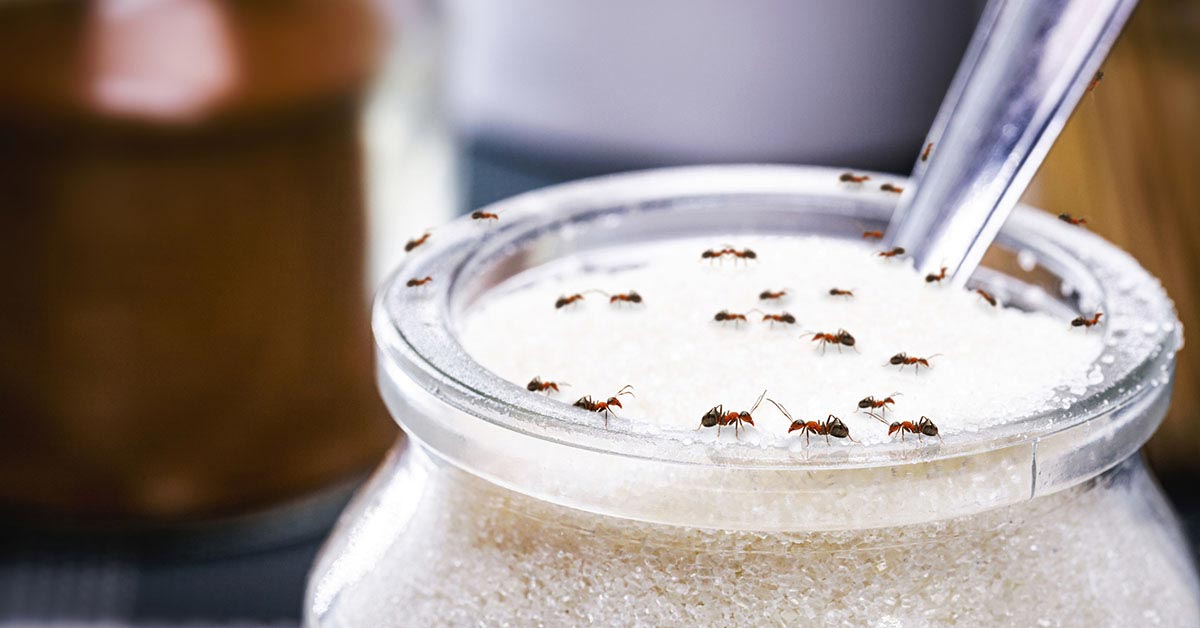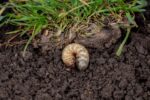
7 Ways to Prevent Ants From Taking Over Your Kitchen This Summer
Ants are a common problem for homeowners in South Florida and once they establish themselves in your home, they can be hard to evict. Most ants that you see foraging in your kitchen or bathroom are usually nuisance ants such as ghost ants, commonly referred to as sugar ants, that are looking for sweet or greasy foods, and pose no health threats to people or pests but can ruin packages of food. These ants can also get into pet food bags and bowls, as well as dry goods stored in your pantry, causing you to need to replace groceries.
Another common nuisance ant in South Florida that is known for excavating soil around sidewalks, driveways, and patio pavers but will also come inside in search of sugar or greasy foods and meat are big headed ants. The major worker caste sports a head disproportionately larger than their bodies, hence the name. Named as one of the top 100 “world’s worst” invaders, big headed ants may be the most prevalent ant pest in South Florida. They leave trails or foraging tubes that can be mistaken for termite mud tubes. The big headed ant also makes massive super-colonies and they are making a name for themselves by displacing fire ants in South Florida.
There are also numerous invasive ant species, such as the black and tawny crazy ants that may also come inside in search of sweet food. Even worse, tawny crazy ants, named for their erratic and rapid movements, are also attracted to electricity and can cause damage to your electrical components which can prove expensive to repair.
Unfortunately, the list continues for infesting ants here in South Florida. Other nuisance ant species that are likely to enter your home during the summer in South Florida, include white footed ants, acrobat ants, pharaoh ants, carpenter ants, and others. Preventing ants from entering your home in the first place is the best way to prevent them from taking over your kitchen this summer – keep these tips in mind:
- Exclusion
Excluding pests from your home begins with sealing or caulking all cracks, crevices, and holes in your home’s foundation and around doors, windows, and other entry points. Ants are tiny and can slip into your home via the smallest of holes. If you are currently experiencing an ant infestation, you can follow their trail to its source and seal that entrance. - Eliminate clutter inside your home
Often, you’ll need to remove things near the wall where the ants are entering. Deep cleaning your home includes decluttering your home. Organize items that you use in storage bins in your garage, closets, kitchen, etc. to make it easy to maintain these spaces pest-free. - Declutter your home’s exterior spaces
Piles of debris including firewood and leftover construction materials make ideal spots for ants to build nests. Eliminate these possible nesting areas by storing extra materials in a shed and stacking firewood at least ten feet away from your home. Leaving six inches between your home and your mulch can help prevent insects from coming into your home. Eliminate any areas of standing water, storing all leftover garden containers in a shed so they can’t collect water. Store kids’ toys out of the elements where they can’t collect water to prevent mosquito breeding areas. Make sure your gutters are cleaned regularly and that your downspouts drain properly. - Maintain your yard and landscaping
Keeping your lawn cut short helps prevent your home from looking attractive to pests. Trimming branches away from your home eliminates bridges that ants can crawl on to access your home. Eliminate any dense areas of vegetation near your property that provide a safe haven for pests. - Clean your kitchen regularly
While you might be aware that cleaning your kitchen is important in preventing ants from coming into your home. By cleaning kitchen surfaces free from food and drink spillage, you lessen the incentive for ants to invade. Other things to do in your kitchen to prevent ants include:- Remove food sources that ants are attracted to such as sweets and high-protein foods. This may mean that you store sweets in your fridge or air-tight glass, metal, or hard plastic containers in your pantry.
- Clean up spills, especially sweet things, such as sodas immediately.
- Wipe down food prep and dining surfaces after each snack or meal.
- Vacuum or sweep the floor in food prep and dining areas after each snack or meal.
- Wash all dishes, utensils, pots, and pans after each snack or meal.
- Store dry goods in air-tight, metal, glass, or hard plastic containers.
- Keep food scraps out of your home
- Depositing food scraps in air-tight trash receptacles in your kitchen and emptying your trash into an outdoor trash receptacle daily deters ants from foraging for food in your trash can.
- Sanitize outdoor trash receptacles and pads to make them unattractive to ants and other pests.
- Feed pets just enough food for their next meal, instead of leaving pet food sitting out for long periods.
- Contact a professional pest control company
Sometimes ant infestations occur, even with your best attempts to prevent them from happening. Contact Hulett Environmental Services for a free pest inspection and to rapidly and discreetly take care of current infestations. Our trained and certified technicians administer best-in-class family-friendly, pet-friendly, and environmentally-friendly ant control services. Most ant infestations require the skill and professional materials and methods professional pest control companies are licensed to use. Hulett can also devise a routine schedule that creates a pest barrier around your home and property, year-round.
Don’t let ants invade your kitchen this summer – Just Call Hulett!



